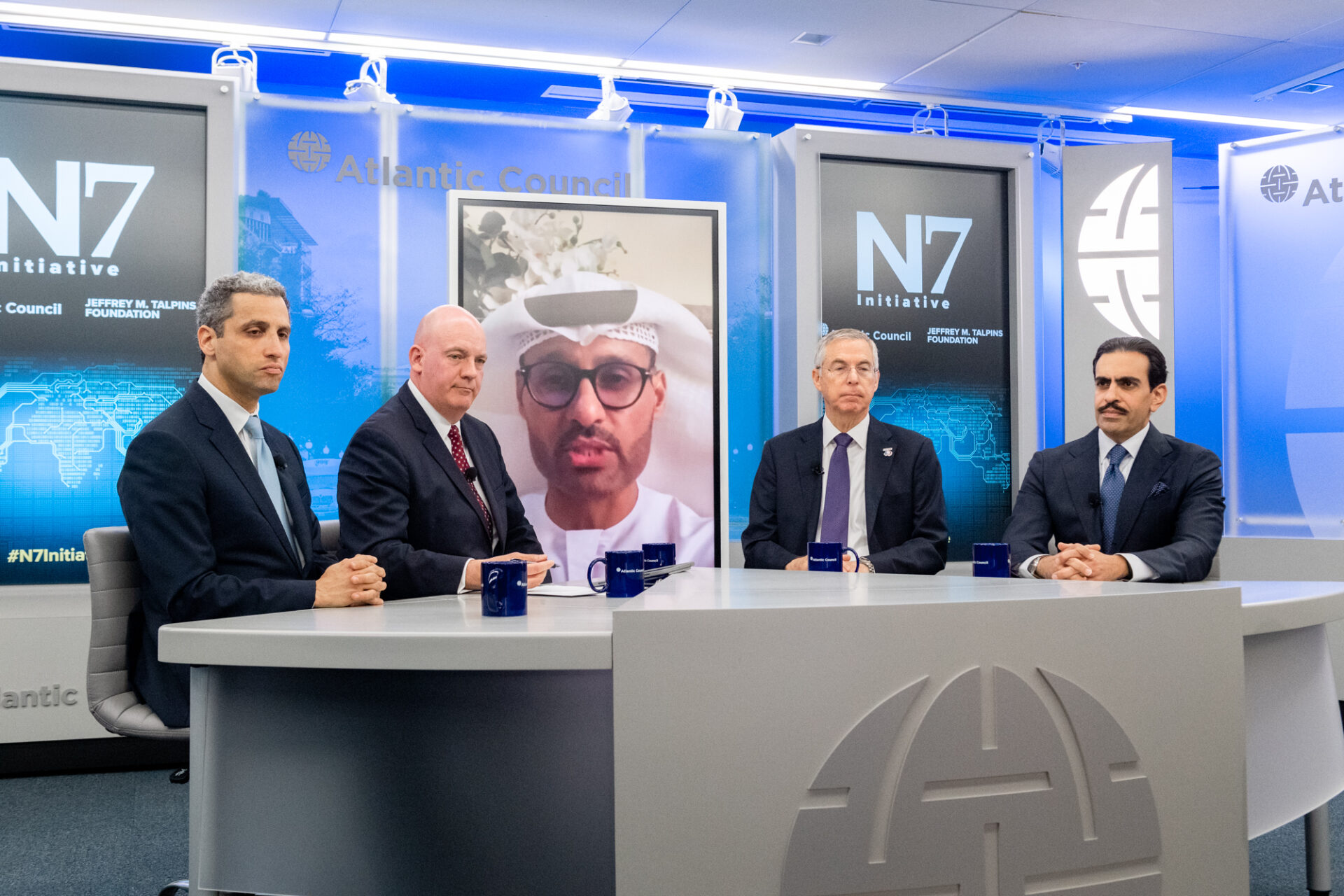Cybersecurity threats highlight need for Mideast cooperation
Ambassadors, experts from Abraham Accords countries debate options at think tank forum in Washington for joint strategy against hackers

Atlantic Council
Panelists from U.S., UAE, Israel and Bahrain at cybersecurity panel in Washington
Concern about cybersecurity is bringing together states in the Middle East and North Africa to develop a regional approach to repelling digital threats.
Representatives from the United Arab Emirates, Bahrain, Israel and the U.S. participated last week in a forum at the Atlantic Council in Washington, D.C., to discuss making cybersecurity a new field for cooperation under the Abraham Accords.
“What we are doing here is seizing upon a geopolitical opening,” Robert Silvers, the U.S. Homeland Security undersecretary for strategy, policy and plans, said during the May 23 panel discussion, which was webcast from the Washington think tank. “We can work together as partners to harden up our defenses.”
Citing statistics that showed Israeli companies receiving 40% of global private capital invested in cybersecurity in 2021, generating $8.8 billion in exports, Israel’s ambassador to the U.S., Michael Herzog, said his country wants to share its expertise with regional partners.
“We live in the same region. We are targeted by the same actors: state actors, non-state actors and cybercriminals,” Herzog said. ‘It’s only natural that we cooperate in the field of cybersecurity since we have so much going between us in so many fields [under the normalization agreements signed in 2020].”
The forum was organized by the Atlantic Council’s N7 Initiative, which is supported by the Jeffrey M. Talpins Foundation in New York. The program aims to generate ideas for policymakers to strengthen and expand the Abraham Accords for greater cooperation between Arab countries and Israel.
Cooperation between the U.S. Navy and Bahrain, where the U.S. 5th Fleet is based, could serve as a model for protection against computer threats, said Bahrain’s ambassador to the U.S., Abdullah bin Rashed Al Khalifa.
“It’s about time that we do the same in the cyber realm,” he said. “The time is now, and I think that there is an appetite with the Abraham Accords. It has really opened up the opportunity to work together.”
Among other participants in the forum were Mohamed Al-Kuwaiti, the UAE government’s head of cybersecurity; Jeanette Manfra, global director of security and compliance at Google; Rep. Elissa Slotkin (D-MI), co-chair of the House Cybersecurity Caucus; and Sen. James Lankford (R-OK), co-chair of the Senate Abraham Accords Caucus.










